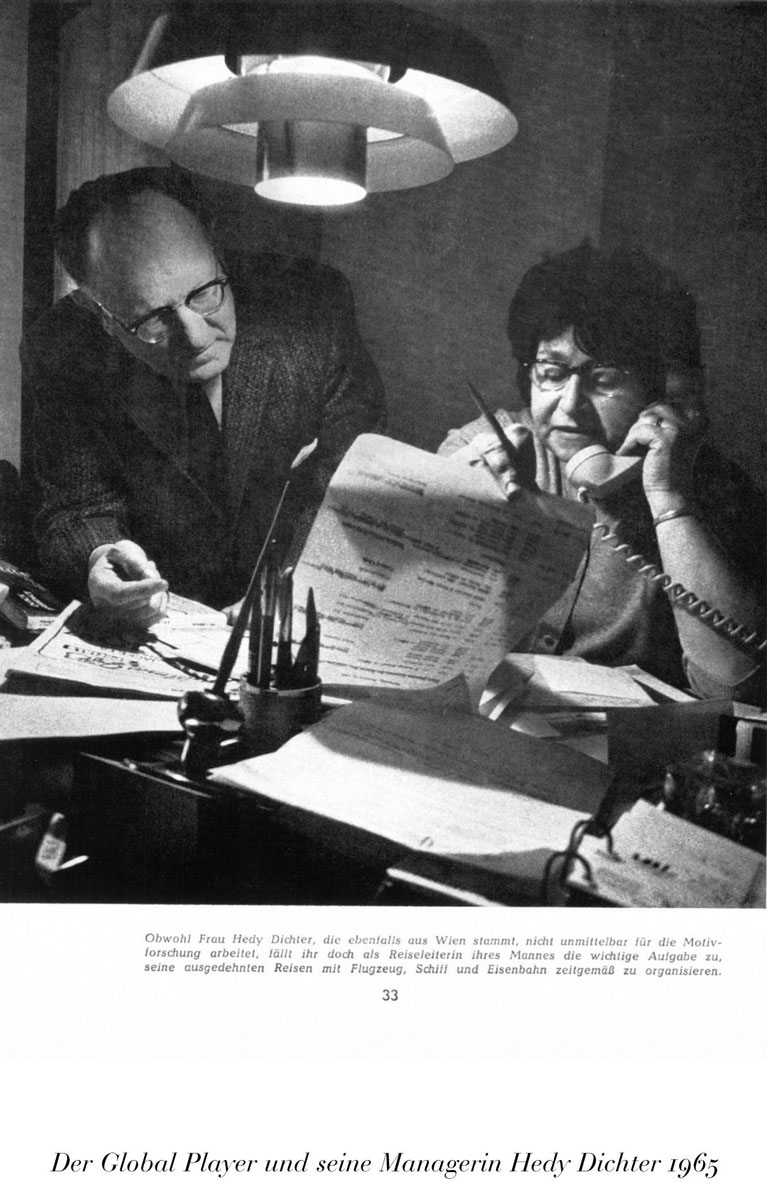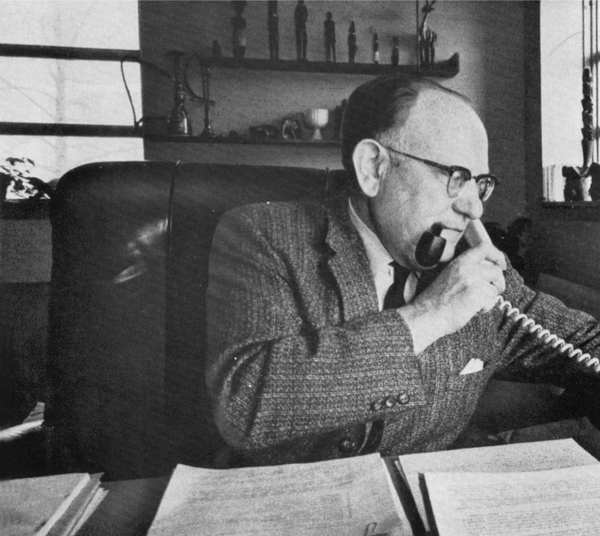ernest dichter was someone who never stopped questioning what a human being is, what motives drive us and how human communication “works”. he had become acquainted with this line of questioning studying moritz schlick, karl and charlotte bühler and in the milieu of the vienna circle. what was most important to dichter was not academic discourse or a career, but the practical uses of philosophy.
in this respect, his pragmatic approach to some extent coincides with the intentions of the vienna circle, which explicitly included in its philosophical aims “to form the mental tools for the daily use of scholars, but also for the daily use of those who participate in some way in actively shaping their lives” (from the manifesto “wissenschaftliche weltauffassung. der wiener kreis”, vienna circle, vienna 1929, p. 14). logical empiricism alone was of course not sufficient. dichter derived his more profound questions from his intensive engagement with sigmund freud, whose psychoanalysis he had adapted following wilhelm stekel and rudolf aichhorn.
from the “imago” concept of gestalt psychology, dichter developed the present-day concept of the “image”.
later given the sobriquet “mr. image”, he postulated that all things have a soul, that they present a projection platform for human desires – and therefore constitute an element of authentic communication. dichter saw himself as a cultural anthropologist, who, in decoding a motif at the core of a thing, tried to penetrate to the core, to find out what is behind people‘s decisions to act, buy, hate, love, vote... often, rational motives are only on the surface with emotions playing the key role; archaic, holistic, mythical, magical or religious ideas are always a part of “happiness” – and who does not want happiness, even if only in the small every day things... .
what is necessary is to take reckon with the images and themes of happiness and ask the big questions, as they shape the trivialities at least as much as rational thought. it is within this field of tension between deep dimensions and surface rationalisation that dichter moved with his interpretations of realities of business and politics alike. product reality and the accompanying, effective communication of product information in the form of advertising belong to this as much as the pedagogical impetus to propagate values in the context of political debate. but what is at stake always is the greater context of society, too.
dichter functioned as an ethically motivated animator, treating human reality as a therapist and educator and aims to tackle the creation of greater consciousness by means of media communications on a grand scale. and doing this he remained an optimist, a hedonist and a humanist. dichter established the pleasure principle as preceding the reality principle – emotion before reason. nevertheless, pleasure is not necessarily a contradiction of ethics. on the contrary, ethics refines pleasure in a holistic sense. motivating people to experience pleasure and responsibility might be the essence of what dichter had adapted from alfred adler. to have faith in people – encouragement and trust in one‘s own competence (see dichter‘s dissertation “die selbstbeurteilung der eigenen fähigkeiten und leistungen” – “the self-assessment of one‘s own skills and abilities”) – these are huge motivational factors that can also benefit society.. unconventional thinking, creative problem solving, the question of “why not” in place of apathetic resignation, the ability to think in antinomies (“up and down thinking”); these are just a few of the techniques propagated by ernest dichter.
what was his aim? a general openness for everything there is – to shape reality to produce a lasting benefit for humankind, to tackle problems with a creative dissatisfaction and an unconventional, carefree attitude towards loosing gordian knots. this is to be understood as a dynamic event and not perceived of as a static endpoint: “getting there is all the fun!” in this sense, this project is a call and a motivation to get going...

